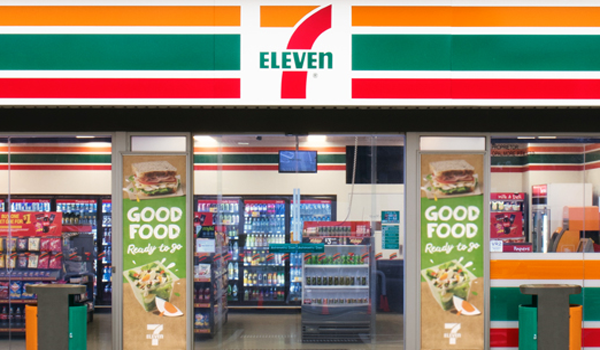Labor has proposed a suite of reforms and penalties for employers deliberately exploiting temporary overseas workers as part of its 2016 election campaign bid.
Opposition leader Bill Shorter said recent high profile examples of wage fraud are “just the tip of the iceberg” and more action is needed to combat the exploitation and underpayment of overseas workers to ensure there is a level playing field for all employees in Australia.
In 2014-15 the Fair Work Ombudsman recovered $22.3 million in back pay for more than 11,000 workers. One of the most high profile cases in 2015 was convenience chain, 7-Eleven. A joint investigation by Fairfax and Four Corners into 7-Eleven uncovered systematic wage fraud, with the convenience chain currently the subject of a national inquiry by the Fair Work Ombudsman. Other companies found to have underpaid workers last year included Pizza Hut and Baiada.
Labor’s policies include significantly increased penalties for employers who “deliberately and systemically” avoid paying their employees properly.
Labor says it will introduce a new criminal offence for those who deliberately exploit temporary overseas workers, and fail to meet their obligations to the worker under the Fair Work Act, even if they are employing the worker in accordance with the terms of their visa.
Labor will increase the penalties for failing to pay workers properly and will seek the views of employers and their associations, workers and their unions on the scale of the proposed increase to ensure that the new penalties are an appropriate deterrent.
Currently, an employer who fails to properly pay workers is liable for a civil penalty of up to $10,800 per breach for a natural person or $54,000 for a corporation.
New penalties could be raised in line with existing penalties on anti-competitive conduct, which would allow the court to impose a penalty that is the higher of three times the amount of the underpayment; or $216,000 for an individual and $1,080,000 for a body corporate.
Labor also intends to ramp up protections for workers from “sham contracting” by strengthening legal protections for workers’ entitlements and increasing penalties.
Under a Labor government the Fair Work Ombudsman would also be given more power to pursue employers who liquidate their companies in order to avoid paying the money they owe their workers.
“In 2015, we saw too many instances of workers’ rights trampled, not just by fly by night operations, but by household names,” Shorten said.
Policies welcomed by industry bodies
The Australian Council of Trade Unions and the national vegetable grower body Ausveg have welcomed Labor’s plans to tackle worker exploitation.
ACTU Secretary Dave Oliver said the examples of 7-Eleven, Myer and Pizza Hut were symptomatic of a wider problem of systemic underpayment of staff and exploitation of workers.
“We strongly support lifting the corporate veil and making company directors personally liable for ensuring workers’ pay in cases where companies are phoenixed, in the same way they already are for unpaid superannuation. This is a significant and long-called for policy that will protect workers form this unscrupulous, but increasingly common practice.”
AusVeg is calling on Labor to work with the Federal Government to implement a register of firms to improve the labour hire sector.
Ausveg deputy CEO Andrew White said: “Temporary overseas workers play a vital role in the Australian horticulture industry during peak seasonal periods, and ensuring their safety and wellbeing is crucial if they are going to continue to contribute to the success of our industry.
“However, it’s important to target the source of this unconscionable behaviour – rogue labour hire firms who take advantage of workers and then vanish without a trace.”
To ensure accountability in the labour hire sector, Ausveg has proposed a scheme where labour hire firms would need to seek approval from the Departments of Employment and Immigration, the Australian Taxation Office, and the workplace safety body in their state before gaining accreditation as an approved firm and being placed on a public register.
“While introducing new penalties and strengthening existing measures may act as a deterrent, effective reform is needed to prevent exploitative companies from being able to access workers in the first place.”
Proposal comes amid more underpayment claims
The proposed reforms comes just a week after the Fair Work Ombudsman launched legal proceedings against Yan Hu and the Sydney-based labour hire company she operates, Global Express Consultancy, for allegedly underpaying 19 overseas workers more than $45,000.
The employees were allegedly underpaid between February, 2014 and May, 2015, when working at three factories in Sydney, including one operated by Banquet Desserts, which supplies cheesecakes and muffins to Coles and Woolworths.
The employees, from Taiwan and Hong Kong, were in Australia on 417 working holiday visas. Hu’s company supplied the employees to also work in a factory operated by Vienna Schubert Estia, which supplies patisserie products to organisations including hospitality businesses, airlines and schools; and factory operated by South Pack Laboratories, which operates a business packing vitamins and other non-prescription complementary medicines.
The employees were allegedly underpaid their minimum hourly rates, casual loadings, Saturday penalty rates and overtime rates. It is alleged that some of the employees also had “bonds” of up to $300 unlawfully deducted from their wages. Pay-slip laws were allegedly also contravened.
Hu faces penalties of up to $10,200 per contravention and Global Express Consultancy faces penalties of up to $51,000 per contravention. The Fair Work Ombudsman is also seeking court orders for the company to back-pay the employees and to commission an audit of its compliance with workplace laws.

